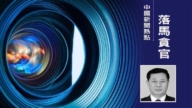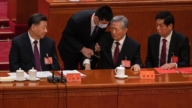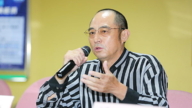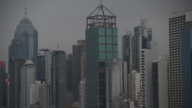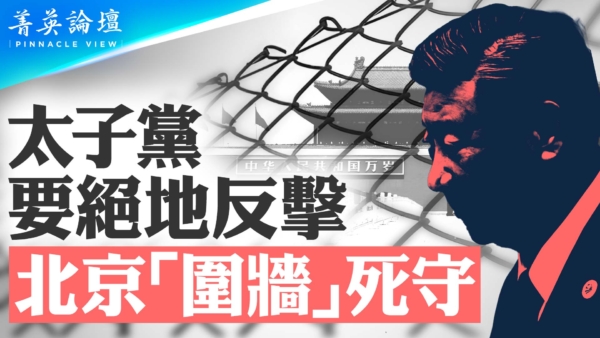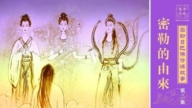【新唐人2013年07月19日讯】16号,湖北武汉举行第40届国际横渡长江活动。在报导这项活动时,大陆官媒罕见播出了毛泽东游泳渡长江的历史镜头。 1966年毛泽东在长江游泳之后,立即开始打倒刘少奇、邓小平,并全面掀起“文化大革命”狂潮。官媒的这篇高调报导,引发外界各种揣测。
中共的喉舌之一《央视》电台,在新闻节目中播出一段影片,作为报导武汉横渡长江活动的新闻背景。这段影片长近4分钟,讲述前中共党魁毛泽东1956年到1966年42次游长江的历史,里面有毛的大量游泳照片和部分录像。报导说,湖北武汉每年7月16号举行的横渡长江活动,就是为了纪念毛在1966年最后一次渡江。
与此不同的是,2010年《央视》在报导武汉渡江活动时,仅在体育频道播出1分钟节目,其中毛渡江的游泳镜头只有大约3秒,报导规格与今年相差很大。
毛泽东1966年在武汉长江游泳之后,便立即着手打倒刘少奇、邓小平,全面推进“文化大革命”。此后,游泳渡长江也成为一种政治仪式。
美国“中国社会民主党”中央委员会主持人刘因全:“现在还在去长篇报导这些问题、还在去颂扬毛泽东当年游长江,这是很反常的。这显示有一个团体想向左转,想还是要回到毛泽东那个时代。”
大陆前《新华社》记者高瑜也谈到,毛泽东当年为了巩固权力,发起各种政治运动,大搞人民公社、大跃进,直至一手制造“文化大革命”,给中国带来巨大灾难。
前《新华社》记者高瑜:“66年就是文革开始,所以也就是这样了。就说明现在坚定不移的要把毛泽东的一切错误要抹过去,以求得当今中共政权的合法性。”
近来,大陆官媒在关于习近平“中国梦”的诠释、废除劳教制度等方面一直处于混乱状态,左右两派论战不断,被外界评为中共高层左右为难、进退失据。这其中,左派言论曾一度喧嚣直上。
刘因全:“毛泽东的阶级斗争为纲、发动文革、发动不明真相的群众、特别是青年学生打倒政敌,这一套办法有可能还会被使用。”
香港媒体引述中国“华东政法大学”教师张雪忠的话说,这段时间官方意识形态明显左转,毛泽东家乡湖南的政法机关开会时挂出毛泽东画像,中共高层也不断使用毛时代的语言。张雪忠认为,中共新任领导层很可能想要通过左倾在党内占有更多话语权,从而稳固手中权力,但这不会是另一次“文革”的前奏,因为时空环境已不同。
近期,中共高层不断推出各种执政言论,包括:“前30年、后30年互不否定”、“中国梦”、“三个自信”也就是所谓“道路自信、理论自信、制度自信”等,来试图为中共寻找执政合法性。
高瑜:“合法性就是:我们成绩是伟大的,我们的道路是正确的,对人民犯下的罪错是丝毫也不检讨的。”
7月11号,中共总书记习近平重回30多年前起家的河北正定县,并到有像征意义的中共老巢——河北省平山县西柏坡村参观,也曾引发外界关注。 《大纪元》新闻网报导,目前中共高层已公开分裂,习近平、李克强与江泽民派系搏击升级。最令习近平头痛的薄熙来案,最近更是风声满天飞。这对于习近平来说,将面临一场政治上的“决战”。在此背景下,习近平的西柏坡之行,有决心迎战之意。
采访/李韵 编辑/李谦 后制/葛雷
Speculation Over CCP Media Broadcasting Mao Zedong Footage
On July 16, the 40th Wuhan International Yangtze
River Crossing Festival was held in Hubei province.
Chinese state media showed footage of former dictator
Mao Zedong, who swam across the Yangtze River in 1966.
After this event, Mao began persecuting
Liu Shaoqi, and Deng Xiaoping.
He also started the Cultural Revolution Movement.
These high-profile media reports on Mao
have triggered international speculation.
The Chinese Communist Party’s (CCP) state-run
China Central Television (CCTV) introduced the background to the festival on it’s news programme.
The 4 minute news piece showed documentary
photos and footage about Mao, who crossed Yangtze River 42 times between1956 to 1966.
The report said that the annual July 16 festival
of crossing the Yangtze River is to commemorate
Mao’s last swim in the Yangtze River in 1966.
Looking back to 2010, CCTV only did a one minute
brief report on the same event during it’s sports program.
In the report, CCTV used 3 seconds of the footage of
Mao, so the weight of Mao content was very different.
After crossing the Yangtze River in 1966, Mao immediately
began the persecution of Li Shaoqi and Deng Xiaoping.
He also implemented the Cultural Revolution in it’s entirety.
Since then, the festival has become a political ritual.
Liu Yinquan, Chairman of US-based Social Democratic
Party of China: “It is unusual to report and praise Mao crossing the Yangtze River with such lengthy news.
It indicates that a CCP faction wants to turn
“left", and would rather to return to the Mao era."
Gao Yu, former journalist of Xinhua, said that to strengthen
power, Mao launched various political campaigns.
This included the People’s Communes, the
Great Leap Forward and the Cultural Revolution.
He brought catastrophic disasters to China.
Gao Yu: “It was in 1966 that the Cultural Revolution began.
Now things like this happen, so it is still hopeless.
It shows that the CCP wants to wipe clean
all of Mao’s mistakes, so as to get legitimacy."
Media in China are still chaotic in reporting Xi Jinping’s
“China Dream", and abolishing the labor camp system.
The struggle between the “leftists”
and “rightists" has never stopped.
International observers comment that the high-levels
of the CCP high-level are in a difficult situation.
Sometimes, leftist opinion takes the lead.
Liu Yinquan: “Mao used class struggle
as a key to launch the Cultural Revolution.
It was used to manipulate civilians
who didn’t know the truth.
This was particularly young students,
who beat down Mao’s political rivals.
This method is likely to be used again."
Media in Hong Kong cited Zhang Xuezhong, a teacher
of Political Science and Law, in East China University.
It said that right know, CCP official’s
ideology is obviously turning to the “left".
Political and legal organs in Mao’s hometown of Hunan
held a meeting with Mao’s portrait being hung up.
High-level CCP officials constantly
quote Mao’s words.
Zhang Xuezhong believes that the new
leadership intends to use a left stance.
It is obtaining more opportunities to
speak, so as to strengthen its power.
However, Liu Yinquan doesn’t consider this
a prelude for another Cultural Revolution.
This is because we are now in a
different environment, space and time.
Recently, high-level CCP officials continue
to implement various political opinions.
It includes, “no criticism of what has been done in the
last 30 years, or what happens in the next 30 years".
It also includes the “China Dream"
and the “three self-confidences".
The purpose is to try to find a
way of legitimacy for the CCP.
Gao Yu: “For the CCP, legitimacy
is that its achievement are great.
It wants the Chinese people to think that the
CCP’s path is correct, and the crimes it has
committed against them will never find justice."
On July 11, Xi Jinping visited Zhengding county in Hebei.
Province. This is where he started his career 30 years ago.
It drew a lot of public attention when Xi visited Xibaipo
village, which was a CCP central office before 1949.
The Epoch Times website reported that high
levels of the CCP have openly split.
The struggle for Xi Jinping and Li Keqiang with
Jiang Zemin’s faction has intensified to new levels.
The Bo Xilai case is a headache for Xi,
with rumors spread all over the places.
For Xi, he will face a final political battle.
In this regard, Xi visiting of Xibaipo village
shows he has likely made up his mind to fight.


